Deliverable: Elearning
WHO’s African Regional Office (AFRO) had a throughput problem. Tens of thousands of health professionals across the African continent needed core immunization training, yet AFRO only had the capacity to train 50 people a year. This left many hard working and well-intentioned public health officials without the core knowledge needed to save children in the areas from vaccine preventable deaths. BCL helped AFRO dramatically expand access to its training. This is how we did it.
Immunization rates are stalled
Routine immunization has once again become a big focus for the global health community. After several decades of impressive increases, the rates of routine immunization have been stalled at 80% since 1990, when other health challenges became priority. In more recent years, routine immunization (EPI) has returned to the forefront, with the community making a commitment to bring rates to 90% by 2030. Achieving this will require making inroads with the most resistant, difficult to reach populations.
Increasing immunization coverage isn’t easy, but there are tried and true methods. Many of these are documented in the WHO’s Mid-level Managers (MLM) program. It expresses the best practices for running immunization programs that are known to produce results. The MLM was created by the world’s foremost experts in immunization, epidemiology, and public health. Health professionals who master the MLM have the greatest chance of making a positive impact on immunization coverage.
Best practices exist – but few have access
WHO’s African Regional Office (AFRO), like all of WHO’s regional offices, is responsible for providing MLM training to the immunization professionals across the African continent. At the time, they offered the training in a six-day lecture-based workshop. The workshop was offered every year alternating between anglophone and francophone countries. In other words, AFRO had the capacity to train 50 health professionals a year. The idea was that the attendees would all then cascade the training down to others in their countries. But it was generally understood that without budgets to run local workshops, the workshops would not likely happen. Even when they did, there was a concern about consistency of quality, particularly since there weren’t standardized MLM training materials they could use.
AFRO needed a way to deliver MLM training to far more people without compromising the quality of the instruction. They brought BCL in to help figure out how to accomplish this. From the start, it was clear that AFRO could dramatically expand its reach with some form of online program. But it wasn’t a given that this would be possible. Much of the learner population lived and worked in areas with sporadic and low bandwidth internet access. Further, we discovered that even with an online program, extended time away from the workplace is a major impediment to training. If we were going to realize AFRO’s goal of reaching a broader audience with consistent quality training, we needed to come up with a solution that worked within these practical realities.
A digital transformation
Working closely together, this is precisely what we did. To extend the reach of the program, we created an online, self-paced version of the MLM training. This would allow anyone with internet to access the training and to do so at their own convenience. Because bandwidth would be limited for most learners, we steered clear of rich media that would take time to download, like videos, animations, and sophisticated graphics. Instead, we relied on text and lower sized images. This did not limit our ability to make the experience interactive (while it is true that rich media can, in many cases, provide substantial instructional value, engaging and interactive learning activities can and often are created using the most basic of media). In fact, all lessons in each course are activity based, meaning they center on interactive exercises, with informational resources existing largely to assist learners in completing the exercises.
The online curriculum consists of fourteen courses, one for each MLM module. As with the classroom variation, completing every module would require many hours of learning time. For the program to succeed, it was important to minimize work disruption. We also wanted to avoid the attrition found in so many online programs of similar scope (some studies have suggested 40% to 80% attrition rates are common). For these reasons, we organized the program differently. Instead of requiring learners to complete all courses before receiving a certificate, as is done with the live version, each course confers a mini certificate. If you earn all fourteen mini certificates, you are then awarded a master certificate.
In addition to making the program available to all health professionals across Africa, AFRO uses it as a pre-qualifier for the live workshops given each year. This has enabled them to refocus those sessions on reinforcement activities and convert it into a master trainer program for the MLM. Participants of these programs are sent home with newly designed training materials (facilitator and participant guides) they can lean on to help them deliver effective workshops on their own.
The opening of the flood gates
By all measures, the online MLM program has achieved its goals. Since rolling the program out in 2020, 7,500 health professionals have enrolled in the program. AFRO has issued 21,000 mini certificates and 523 master certificates. The cost of training has gone from an estimated $5000 per learner to $150 (which decreases with every new learner that enrolls). Just as important, AFRO is better able to satisfy all of the requests for MLM training that it receives.





